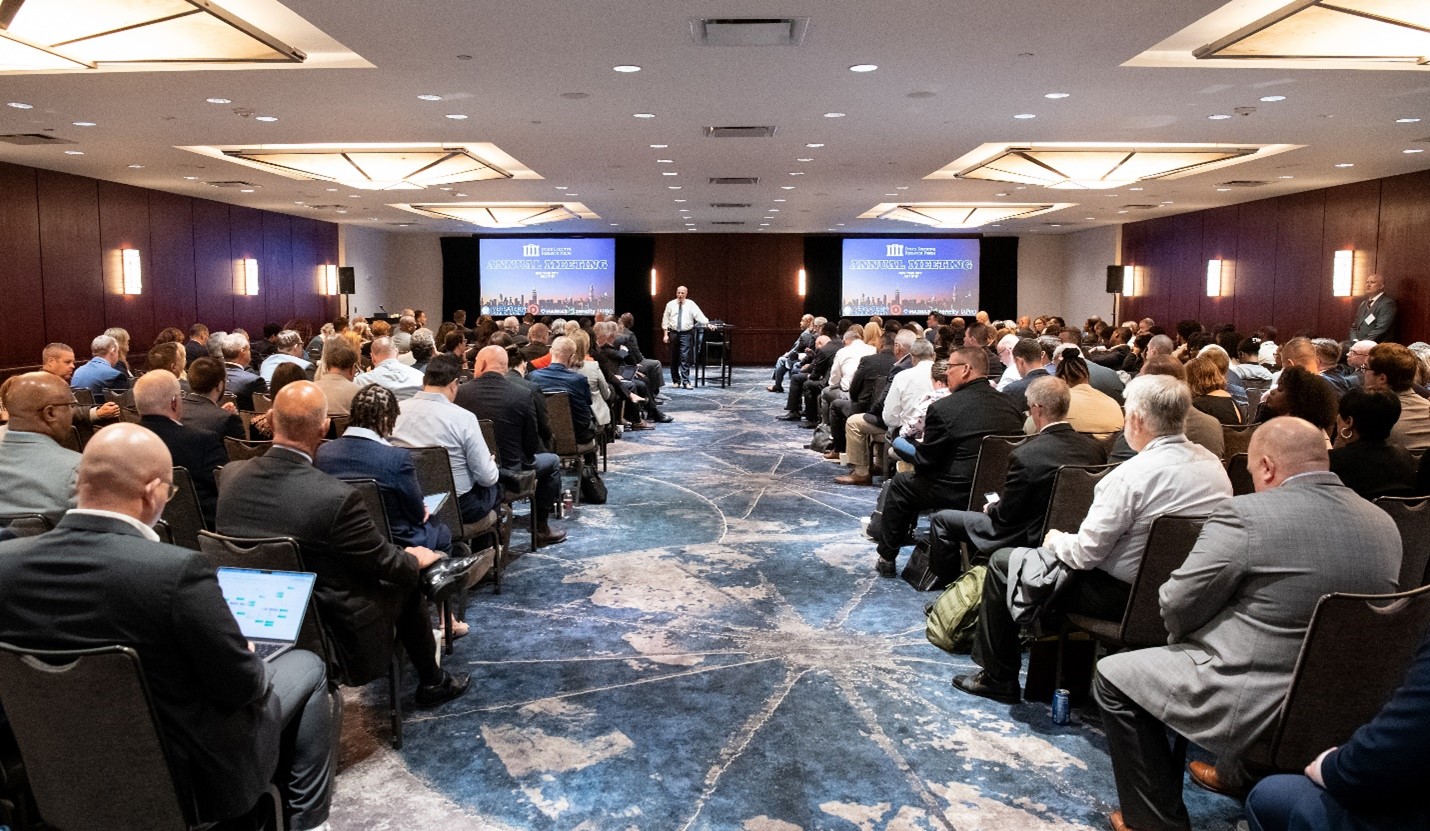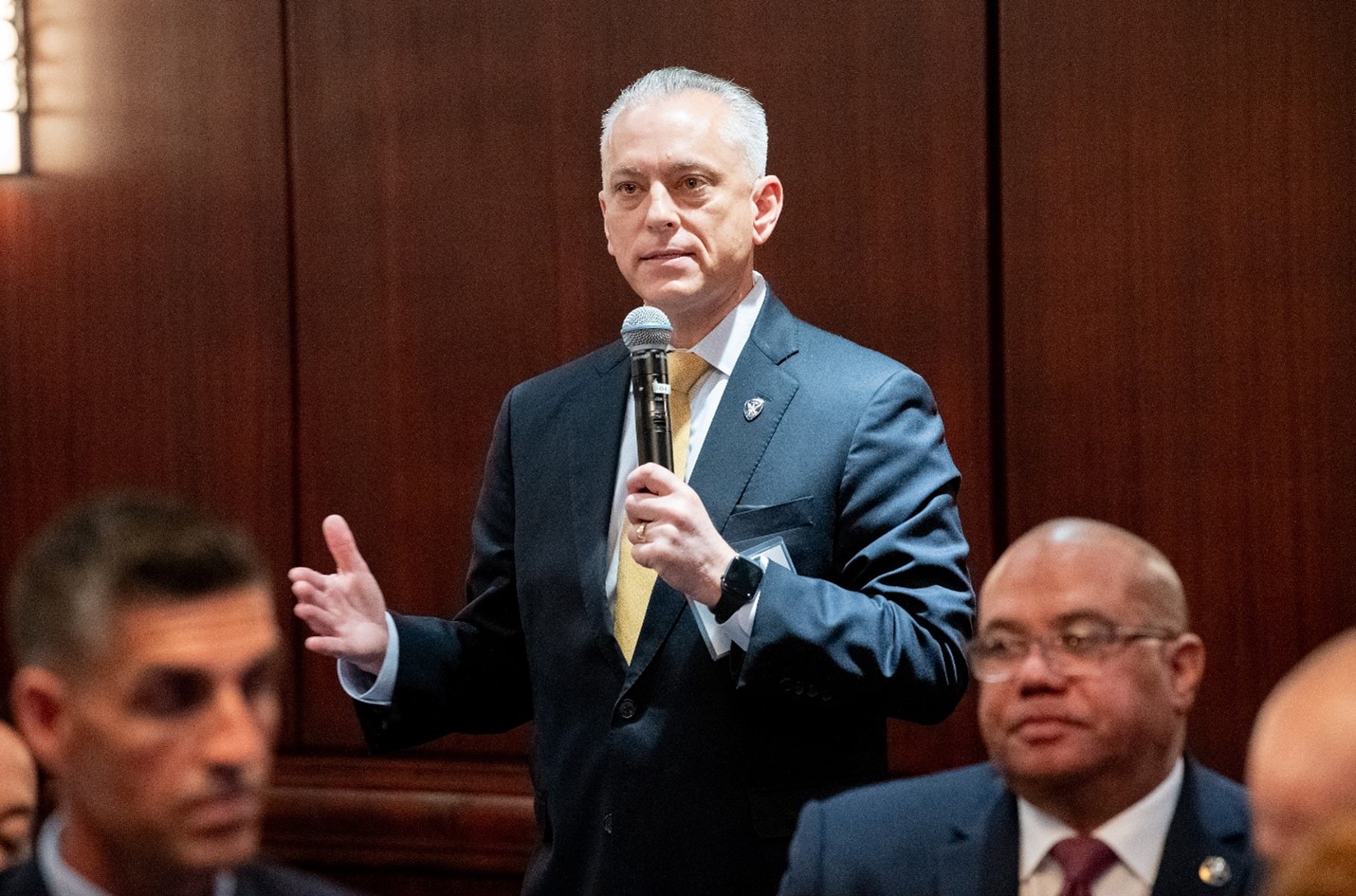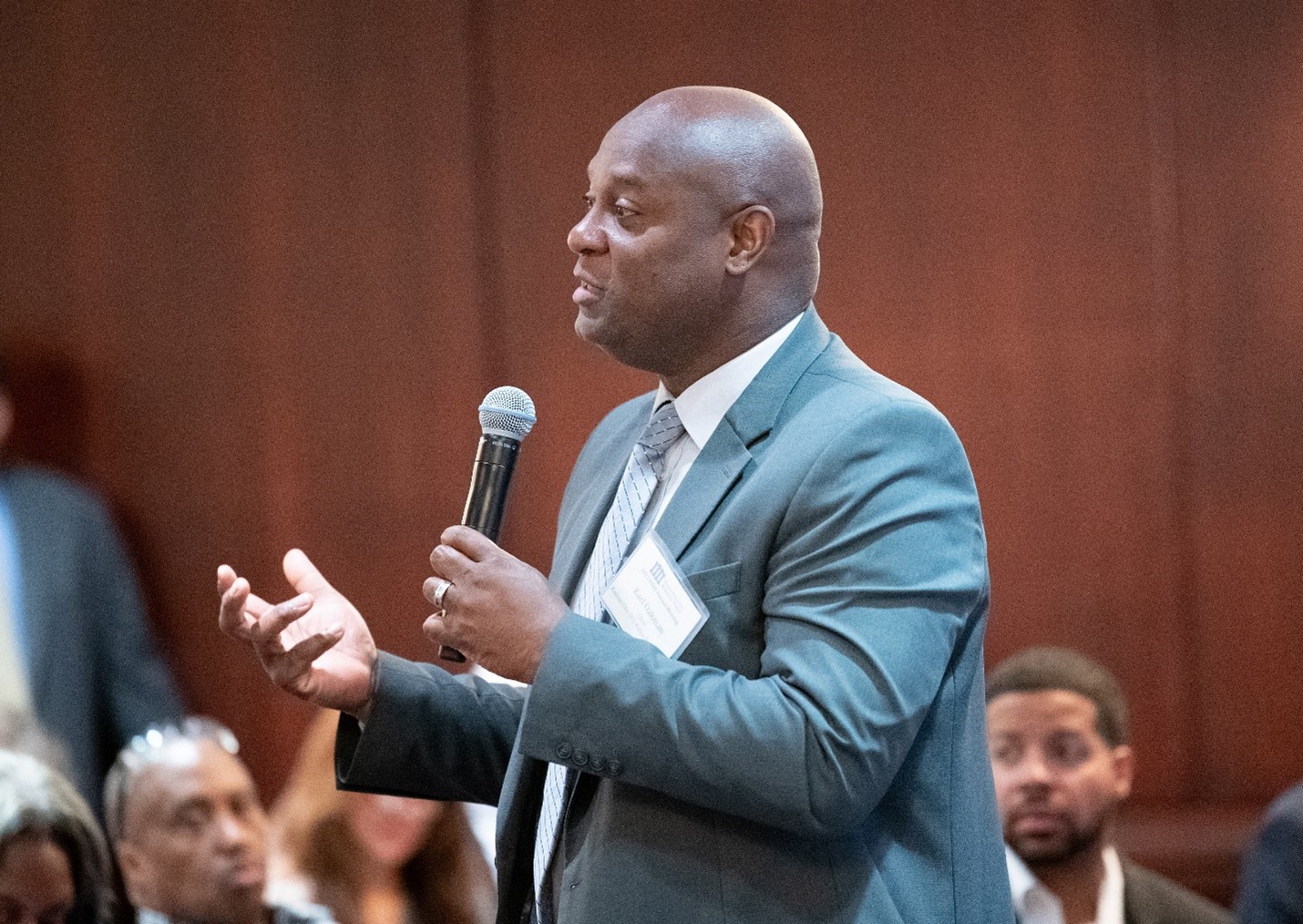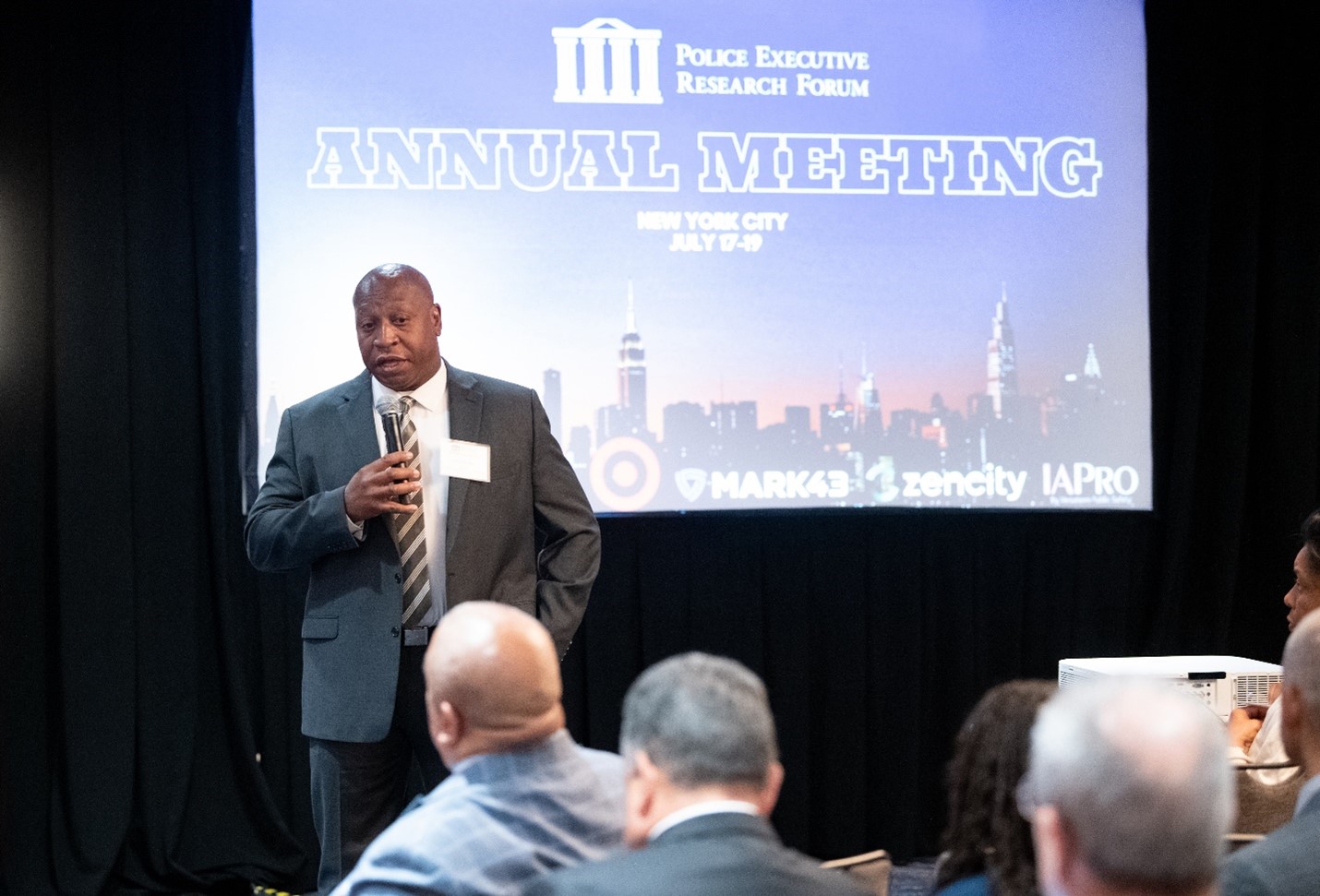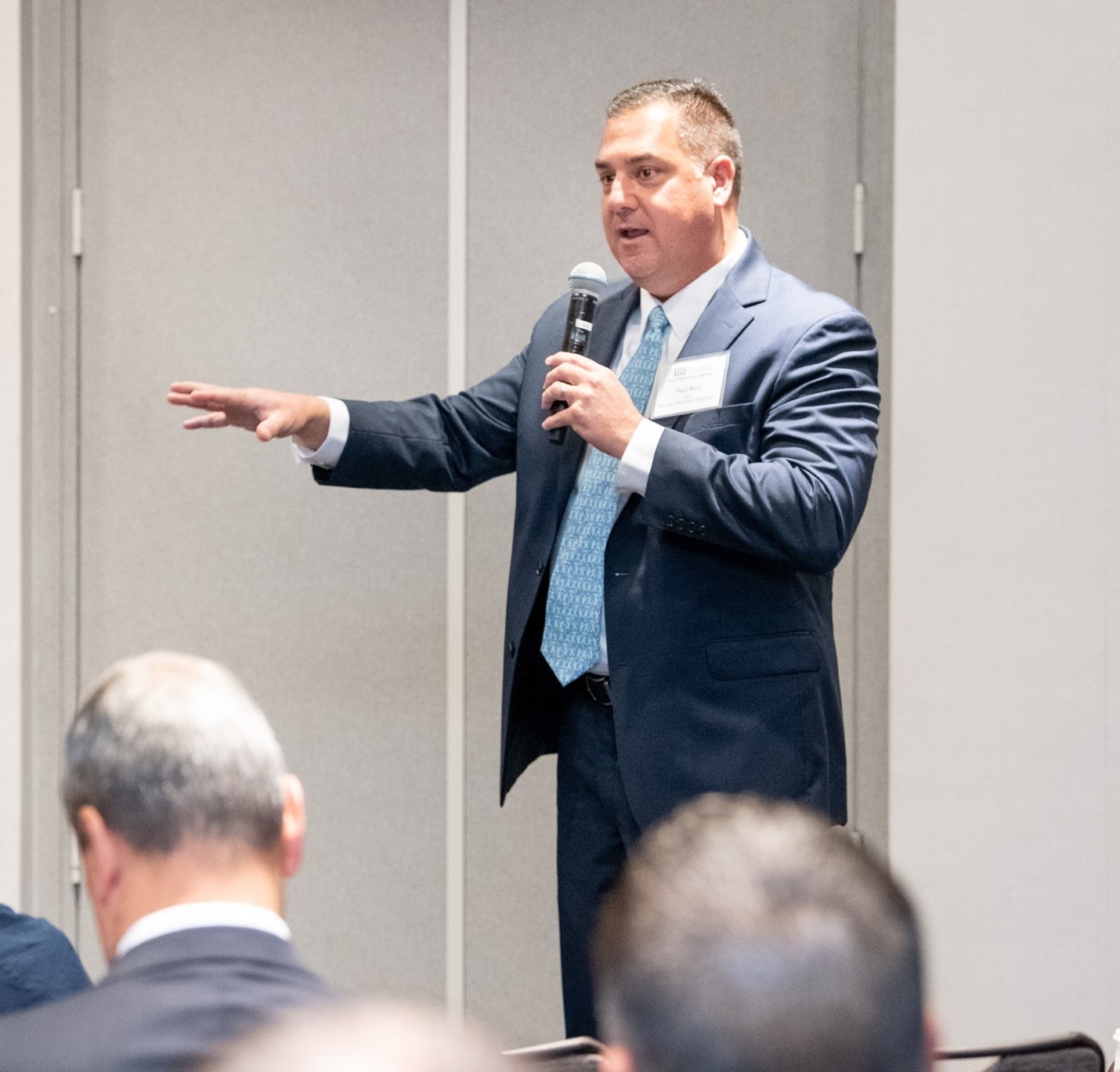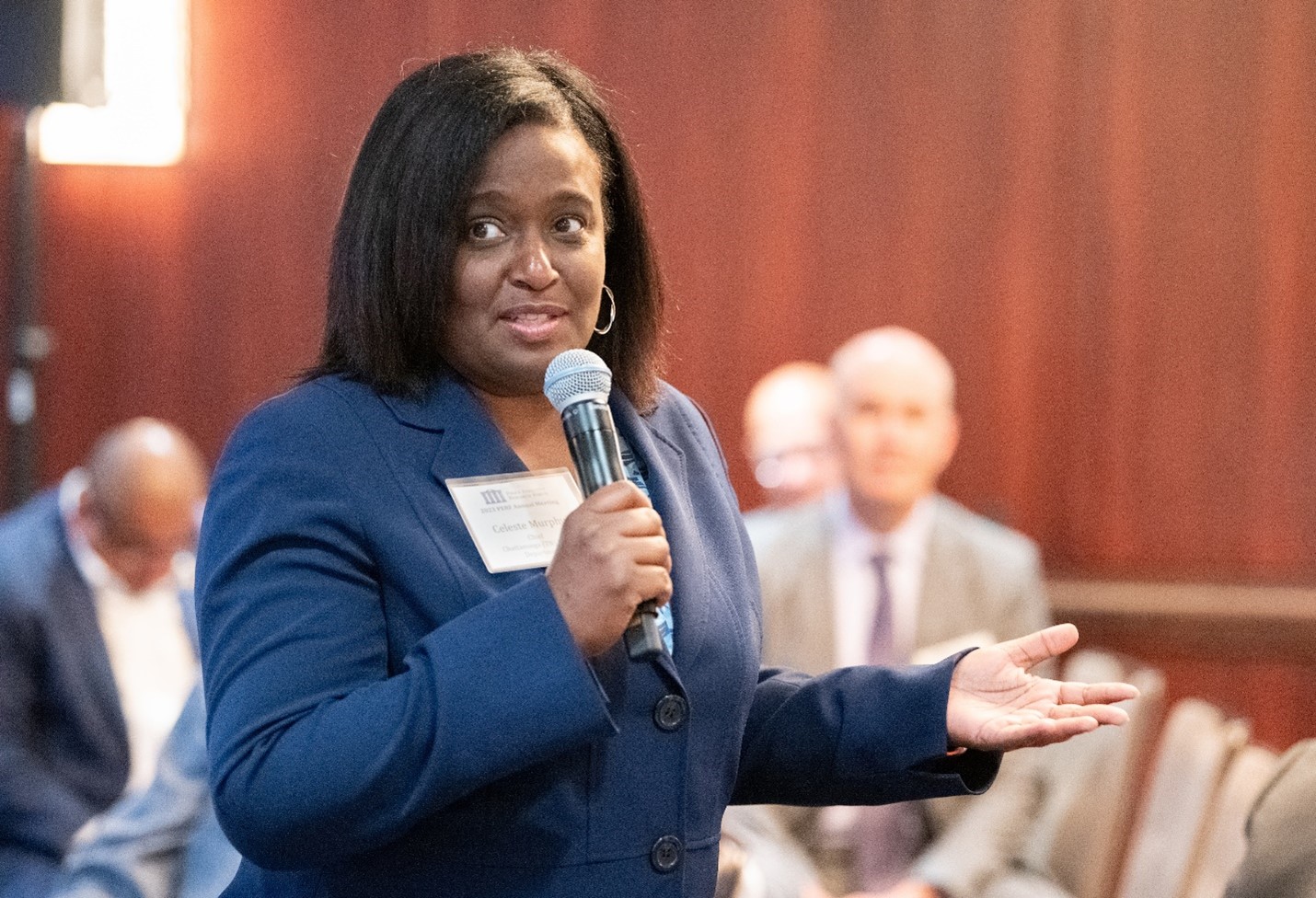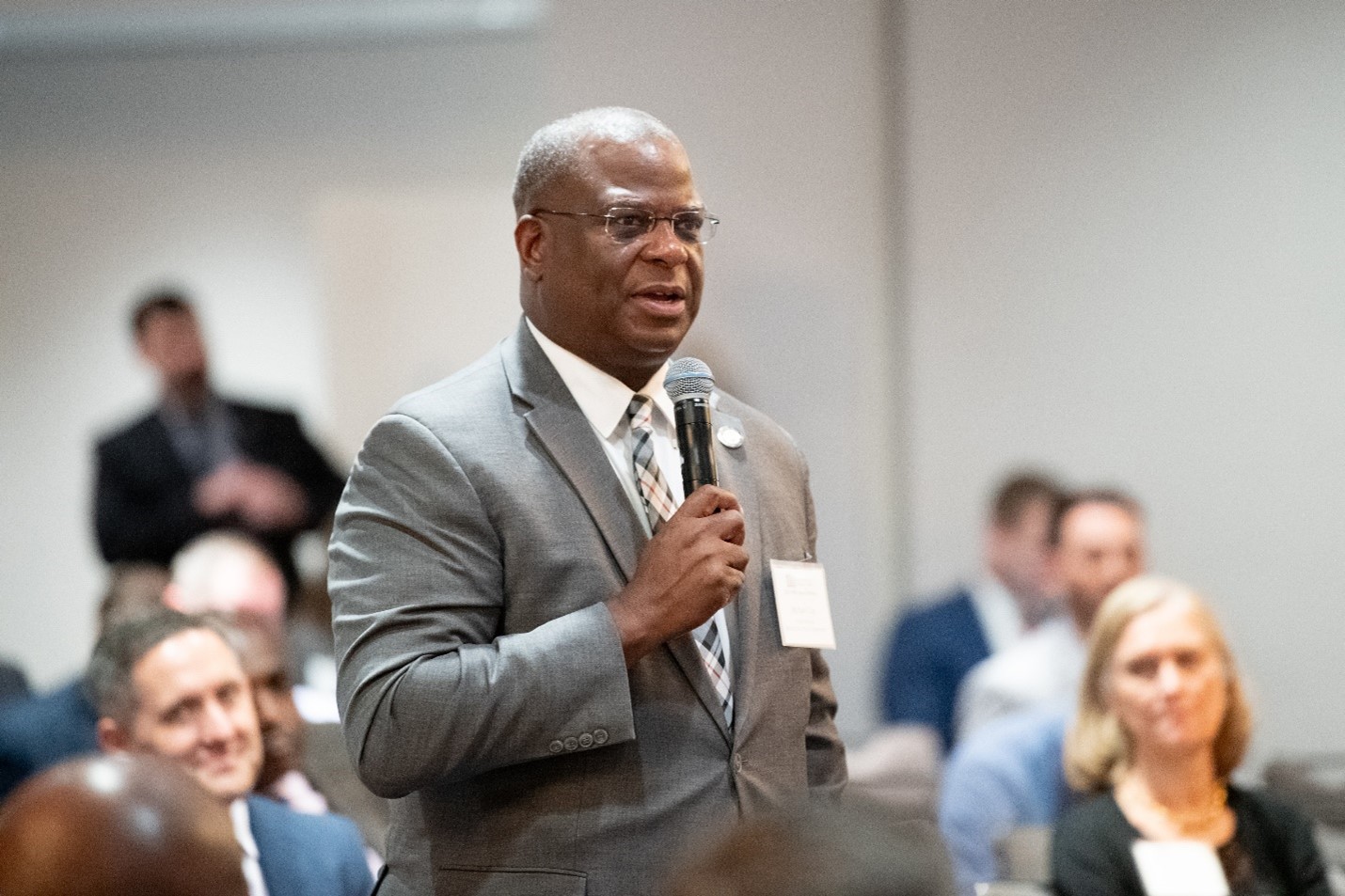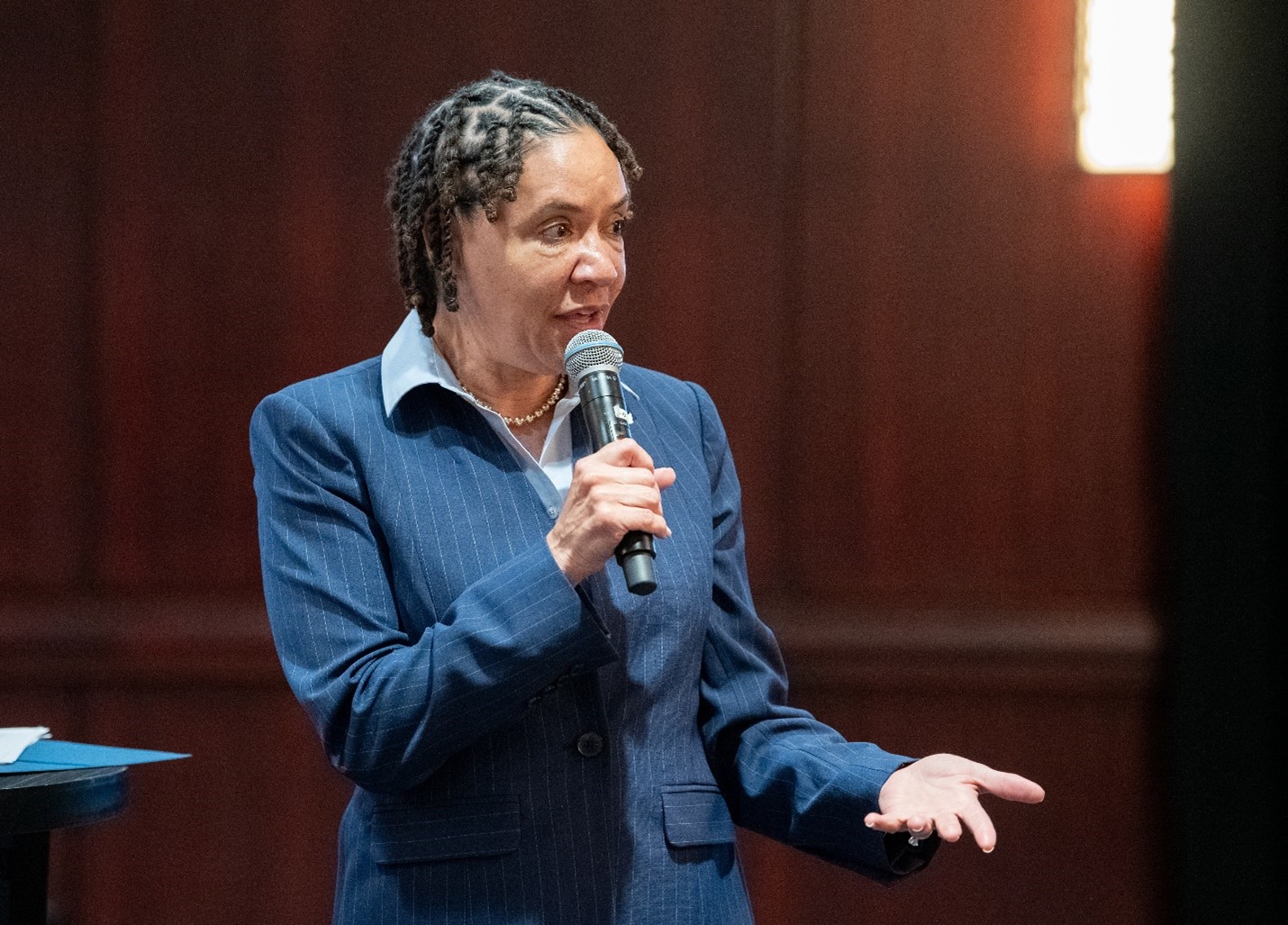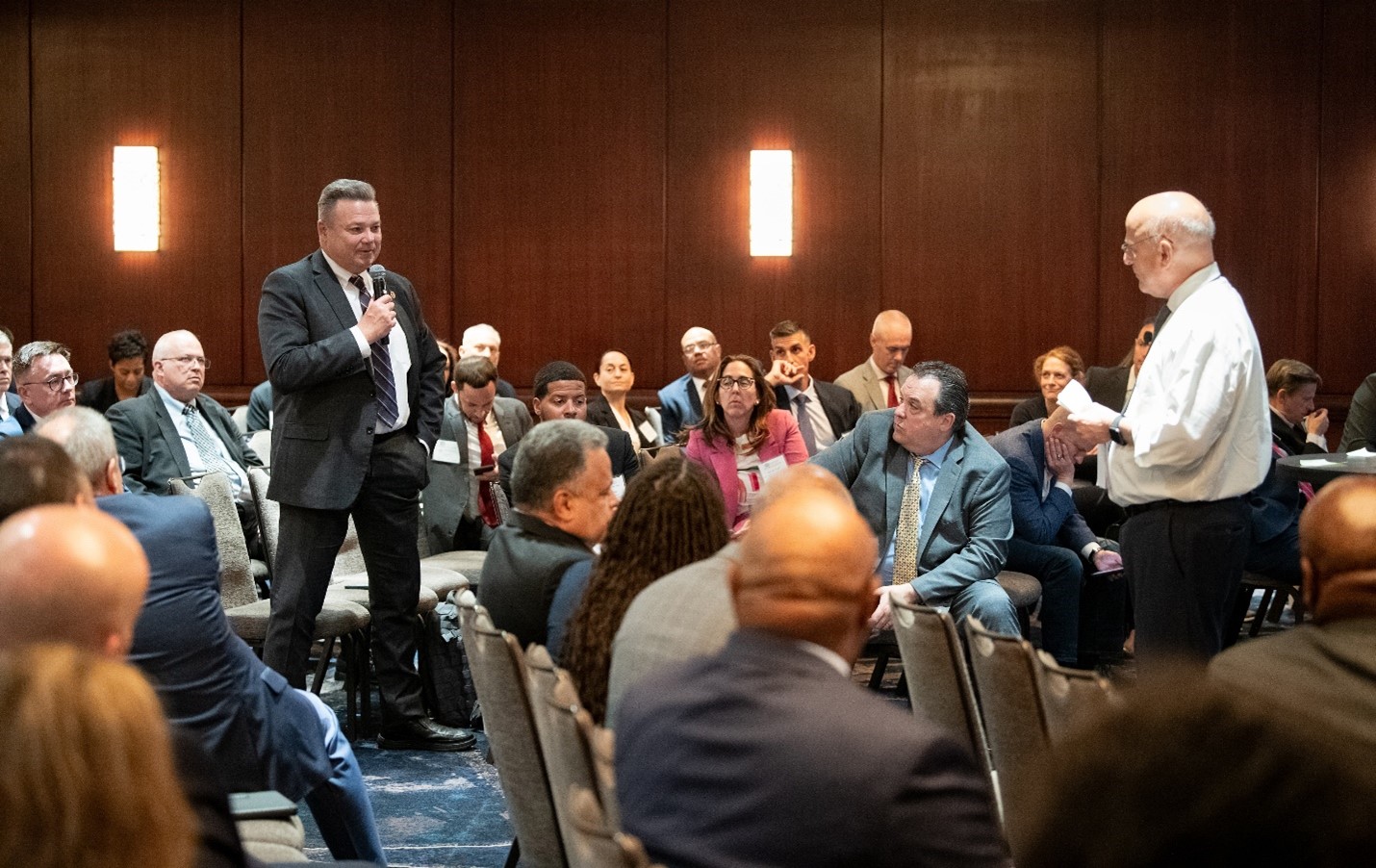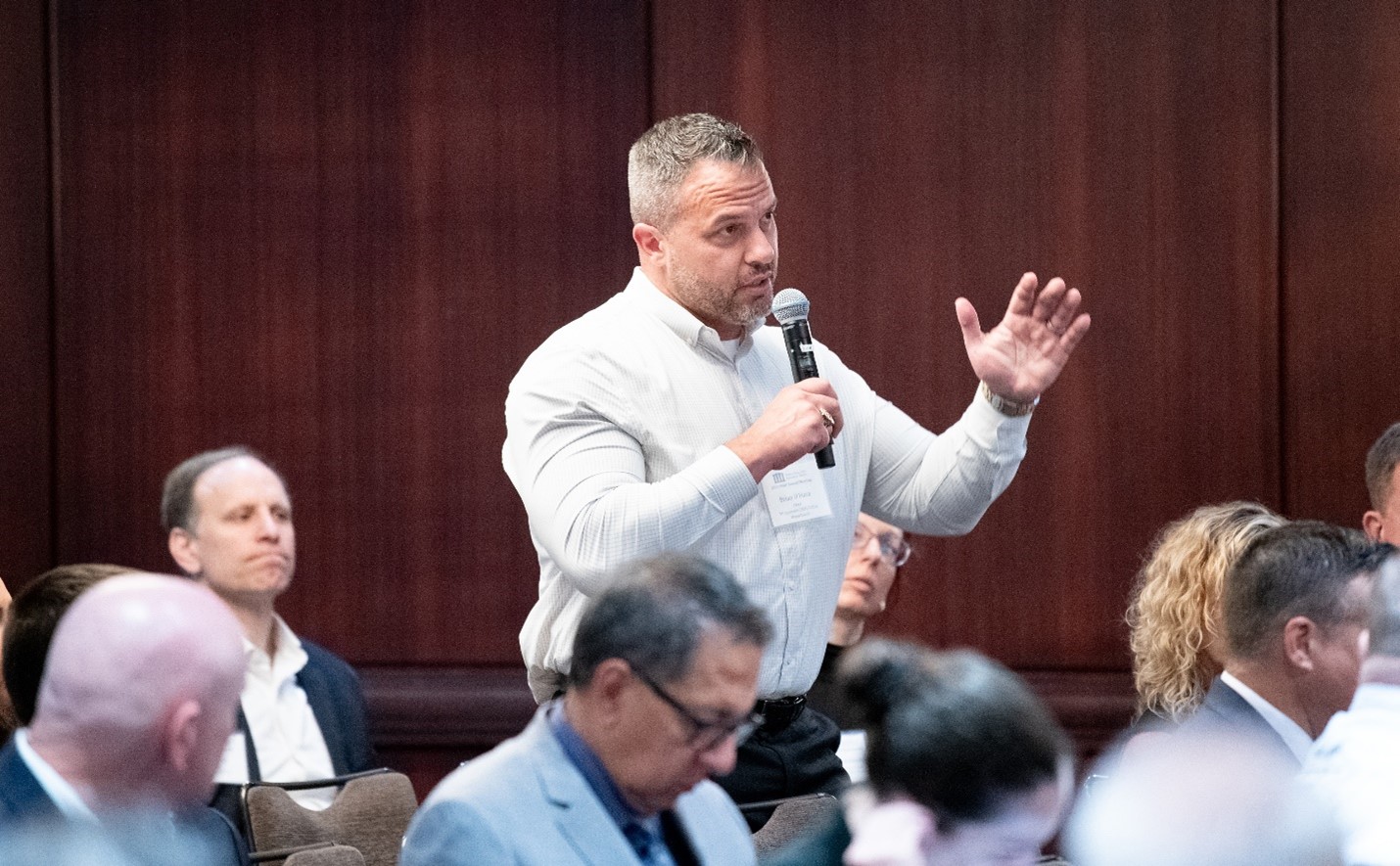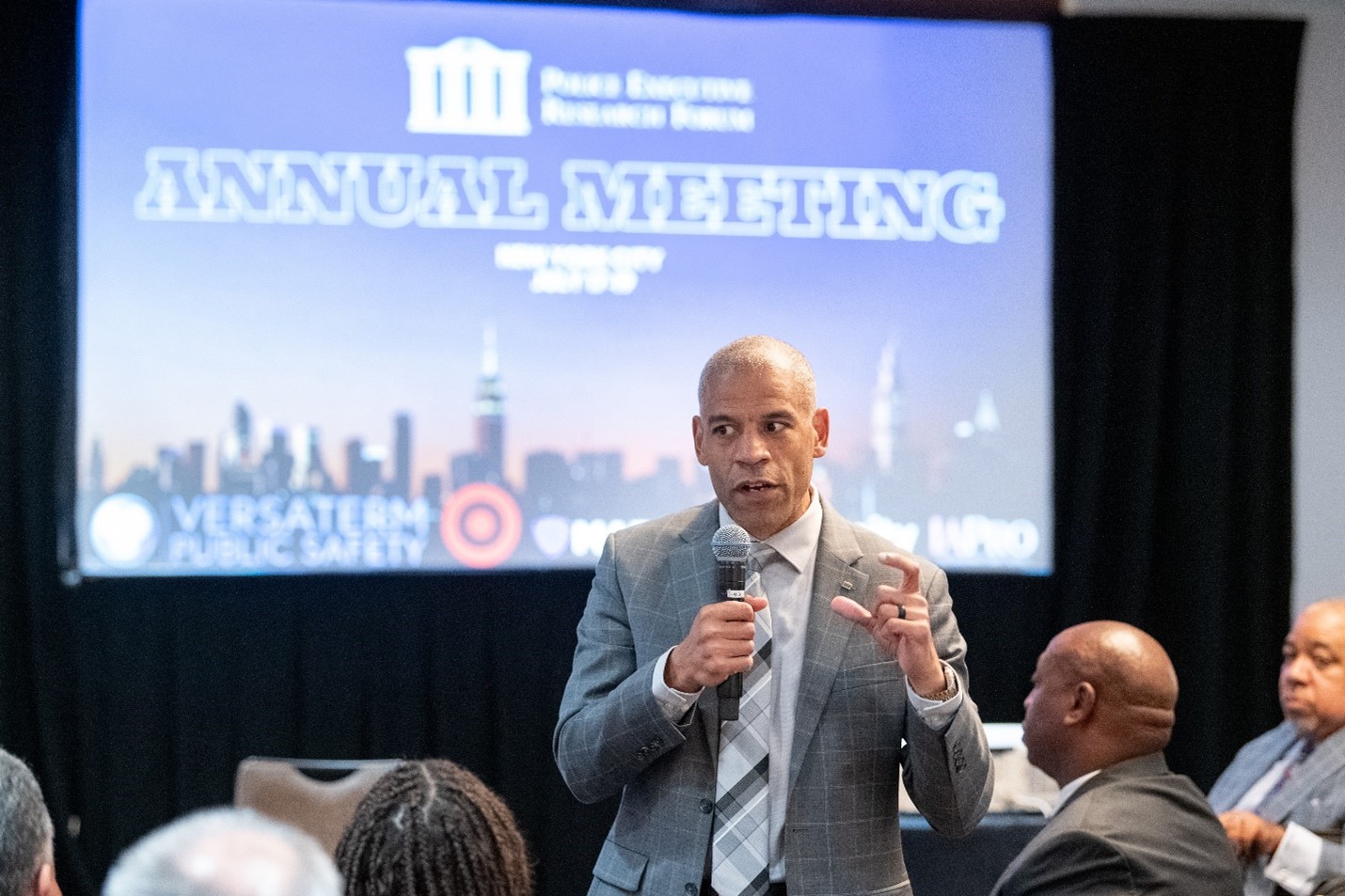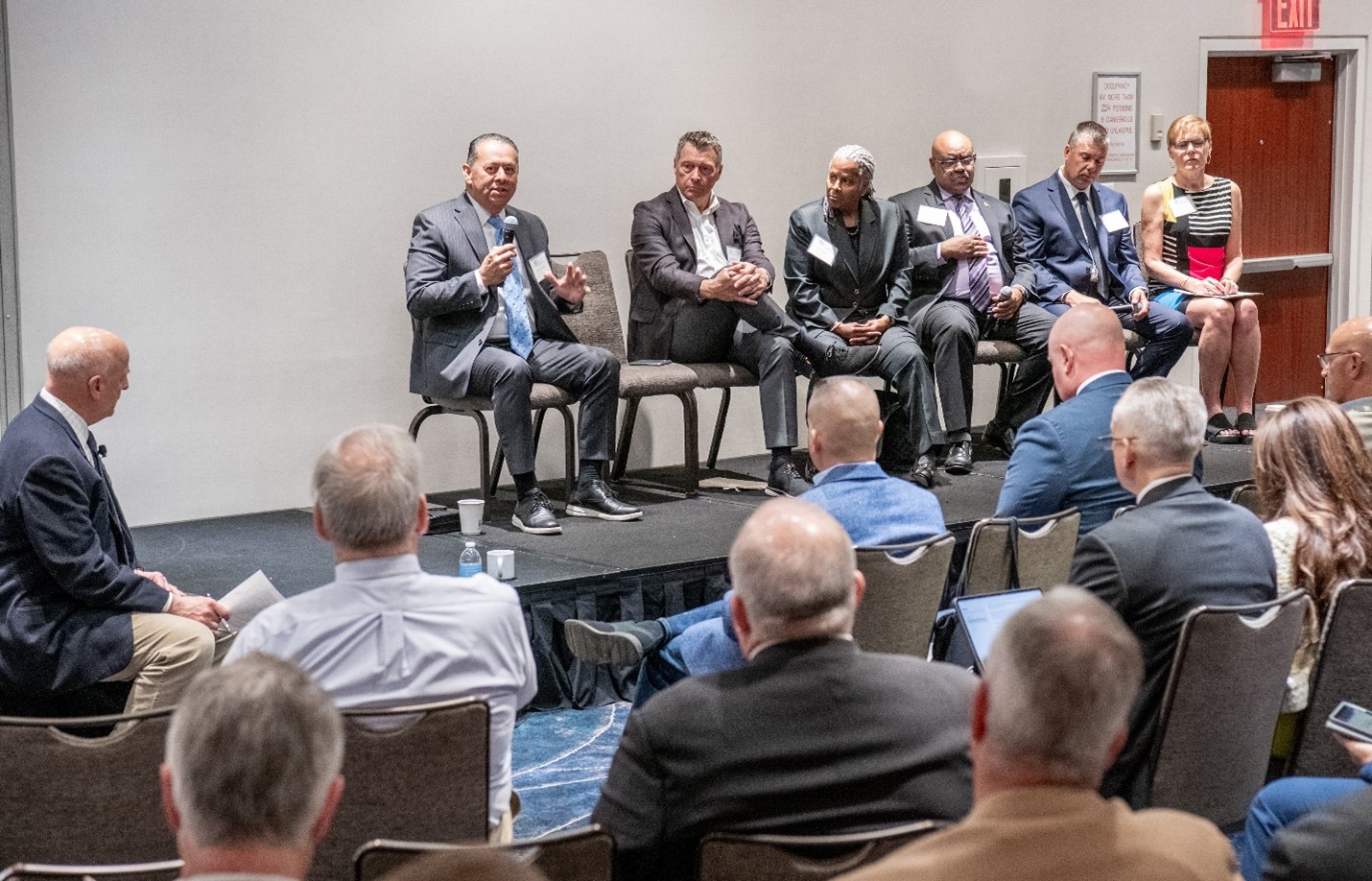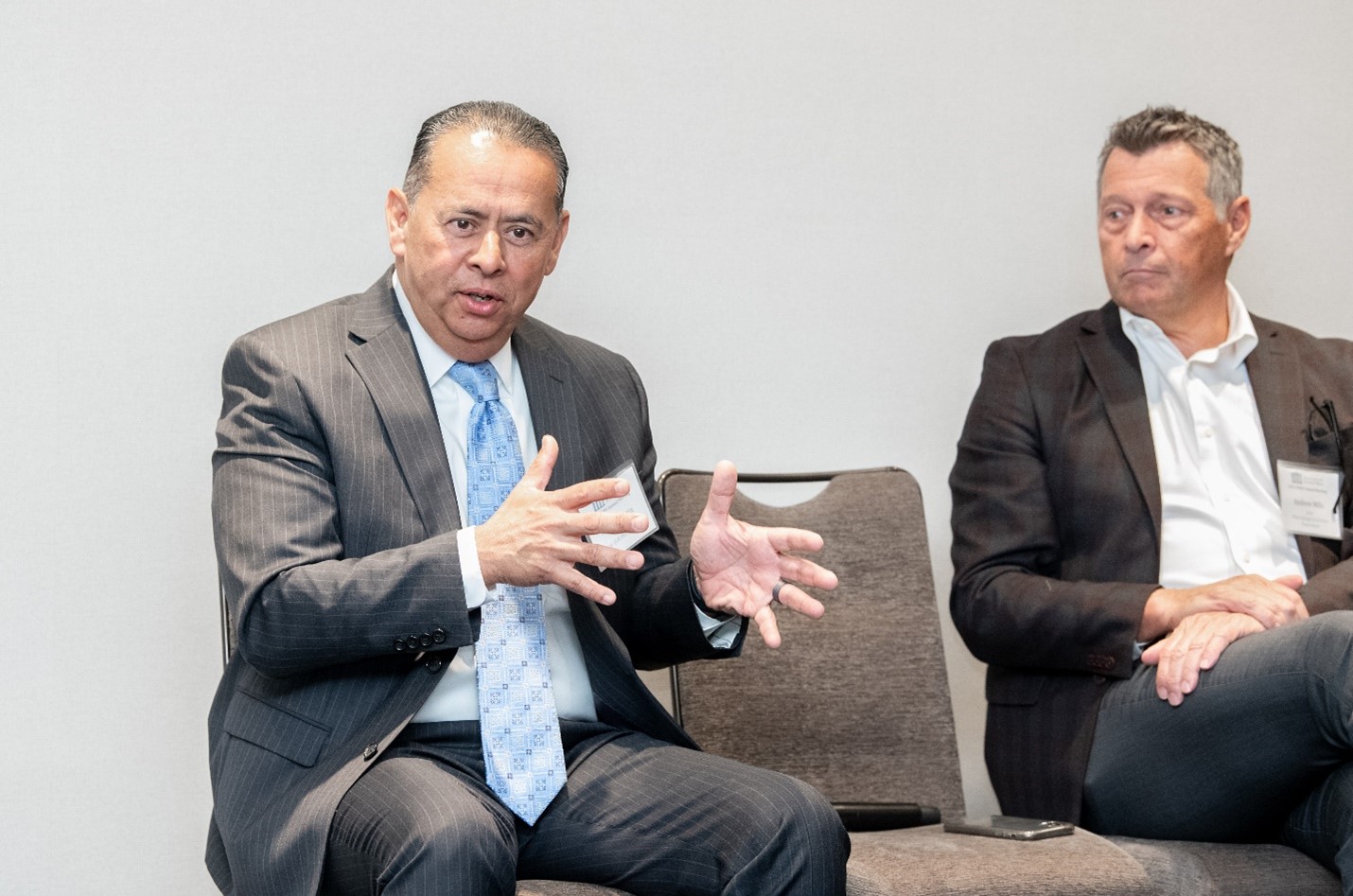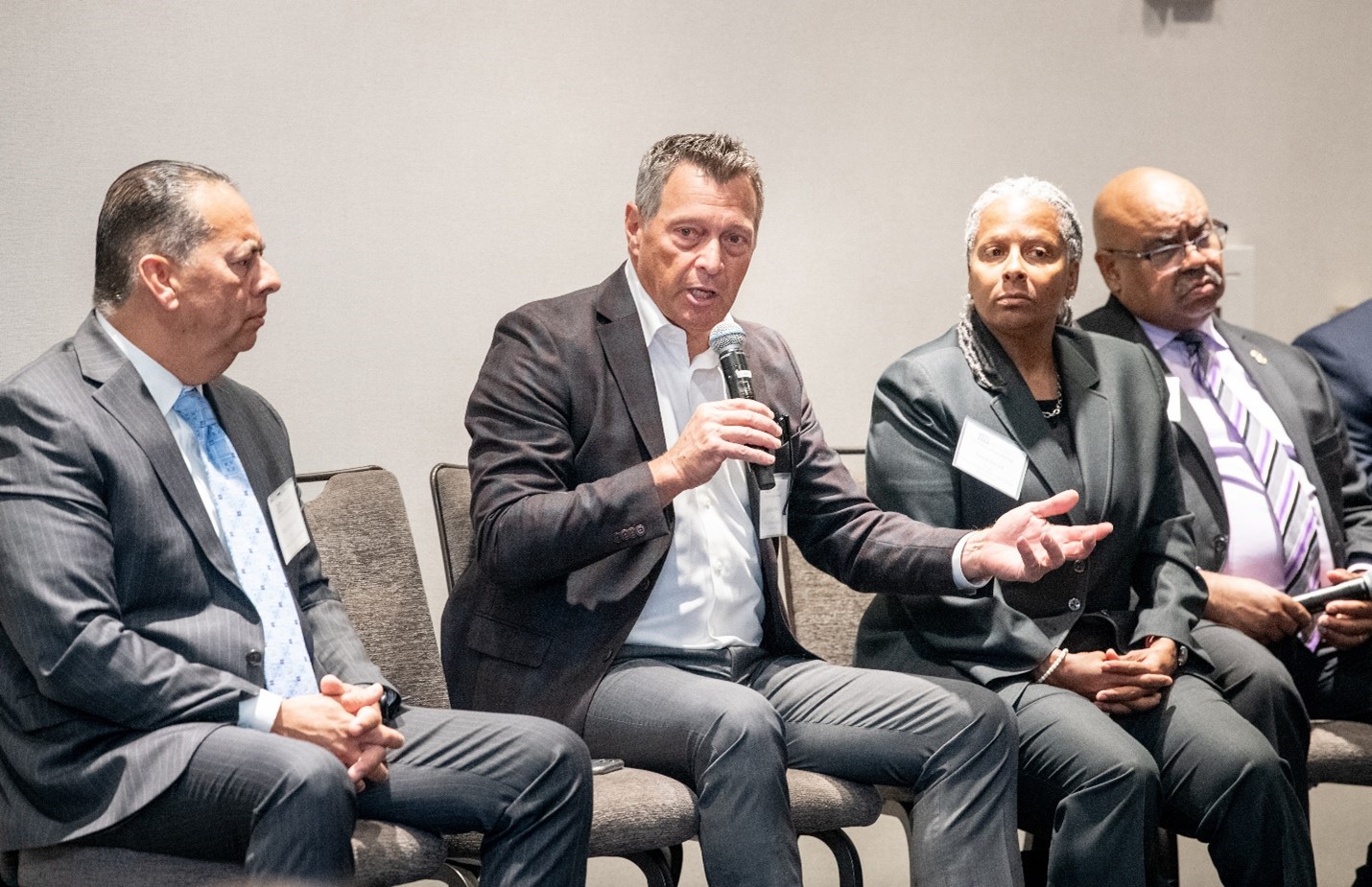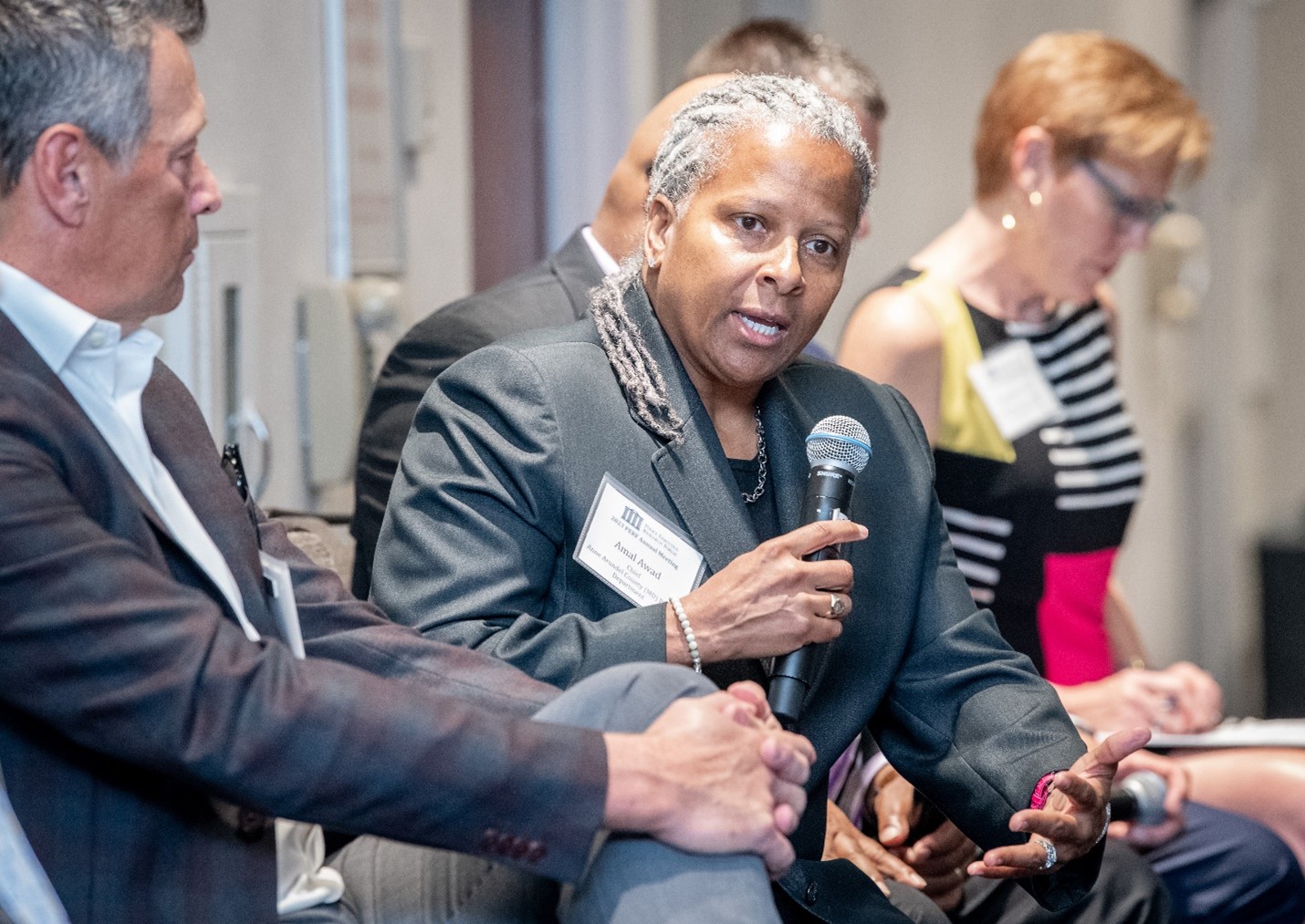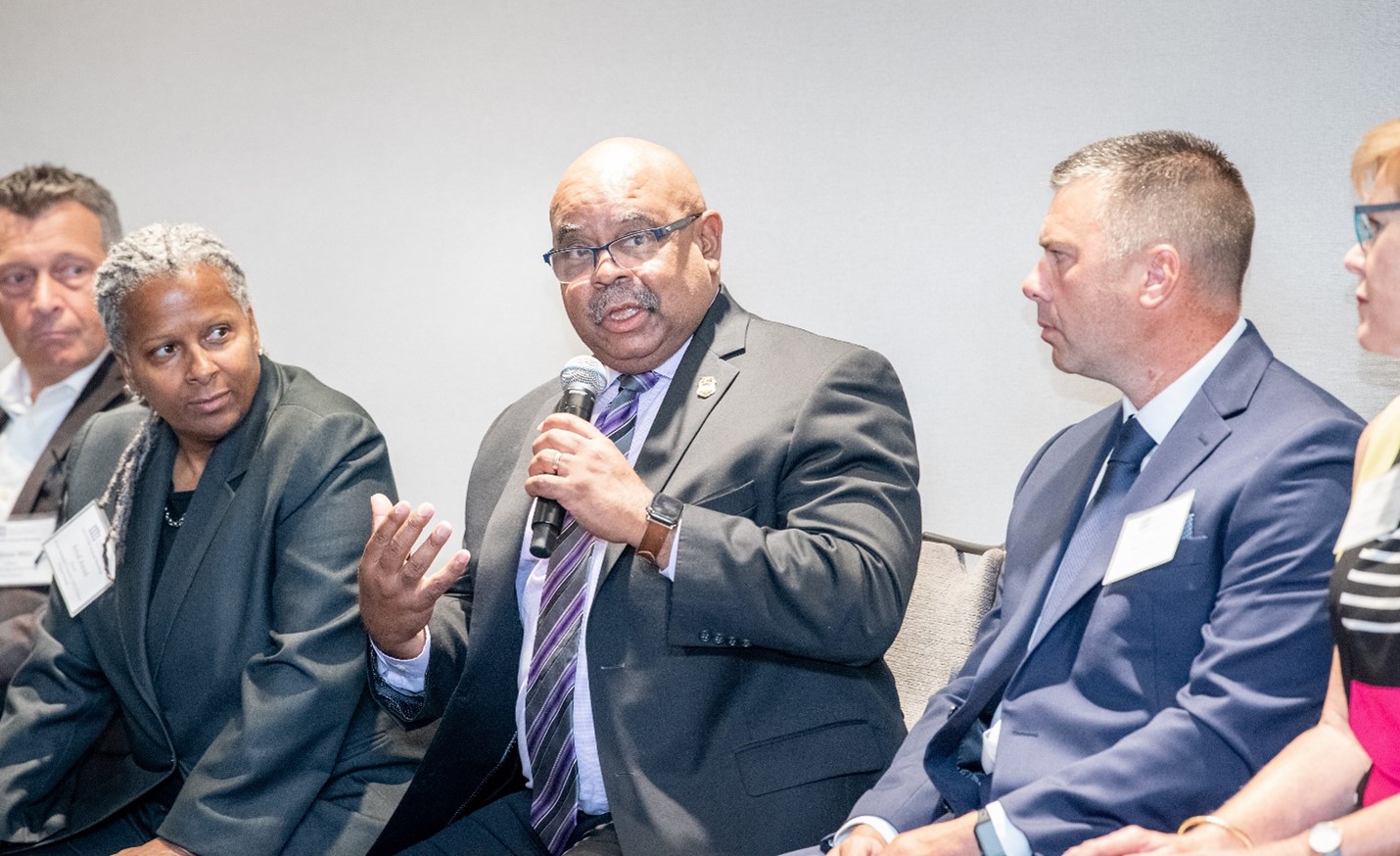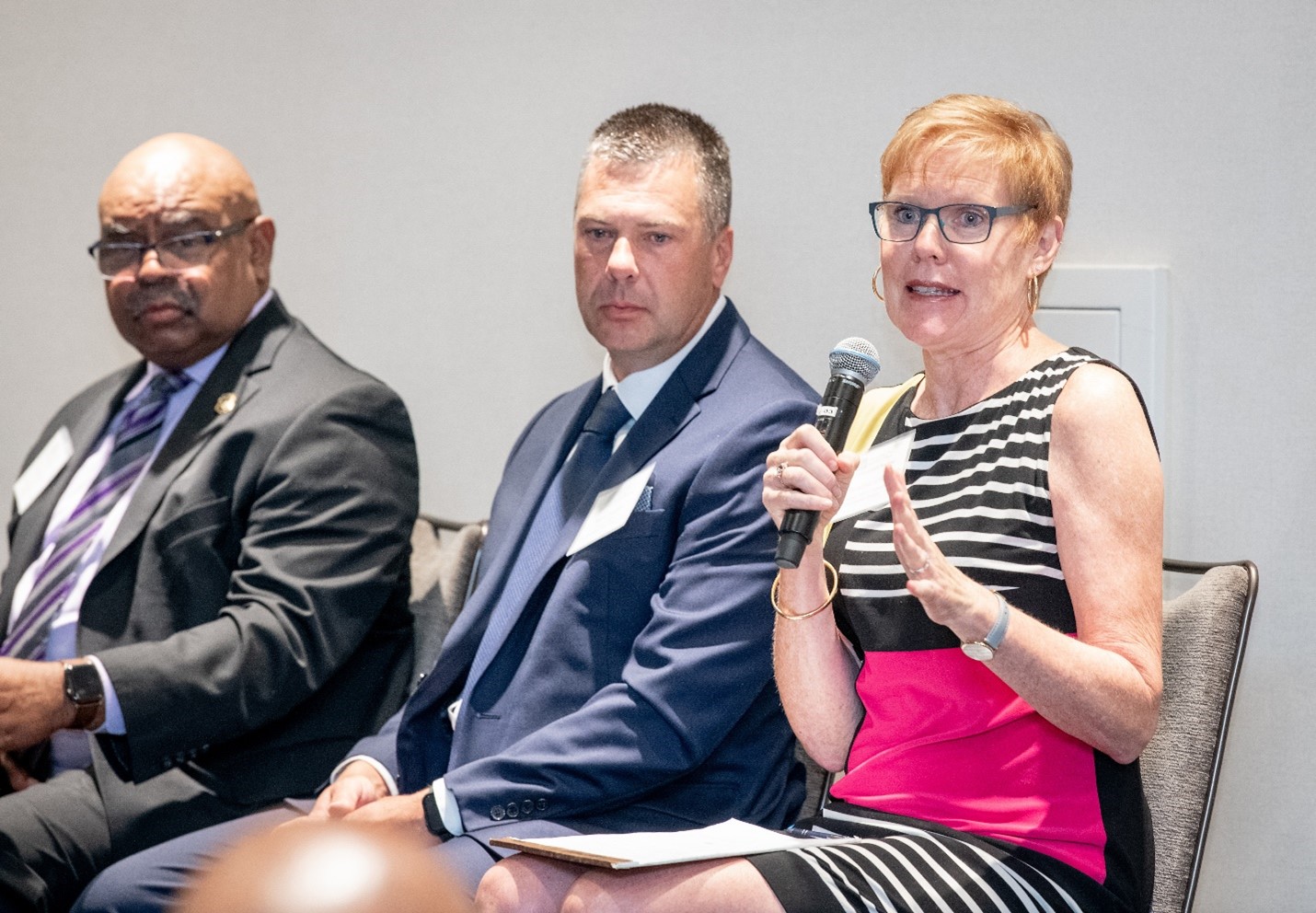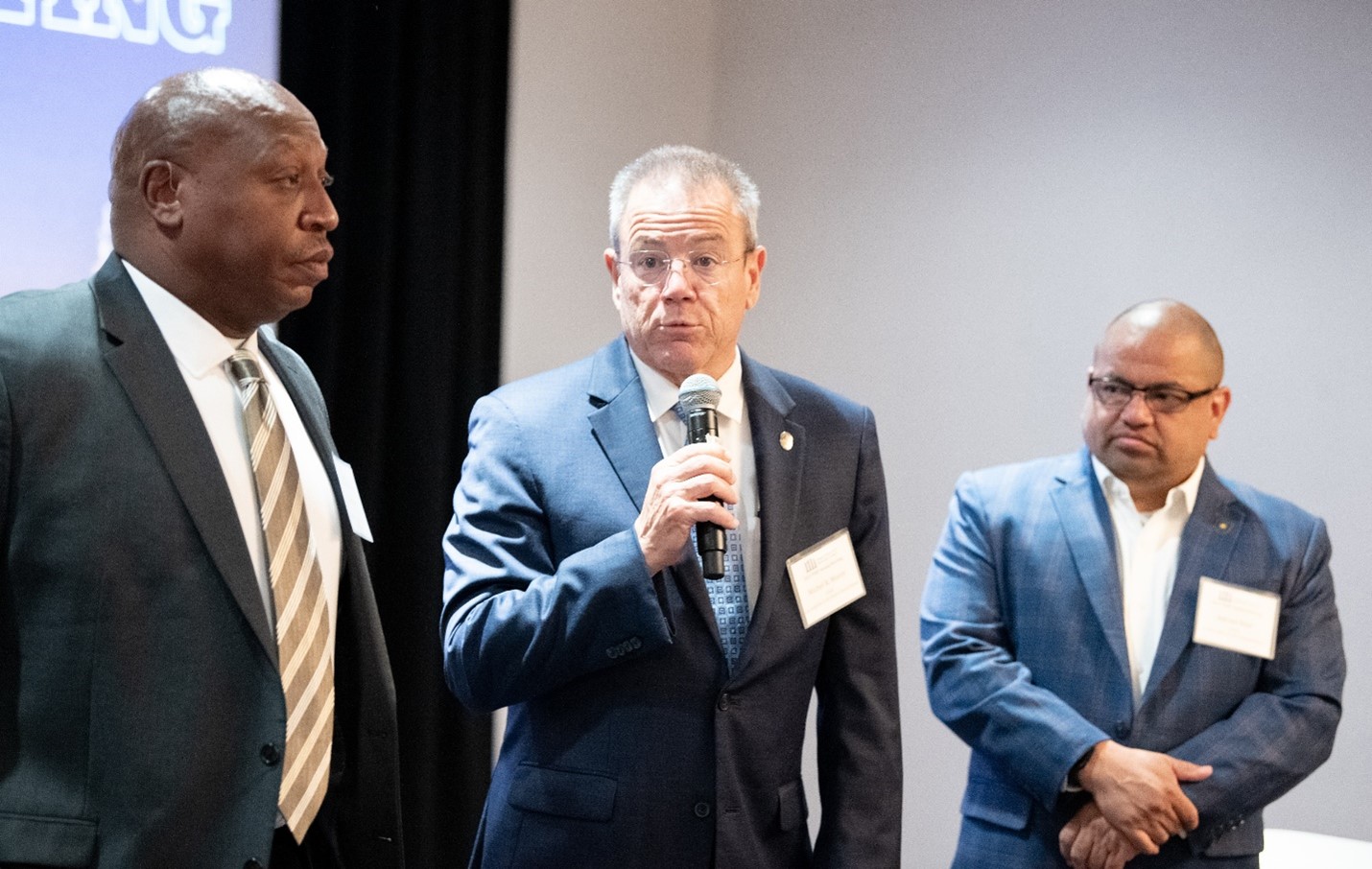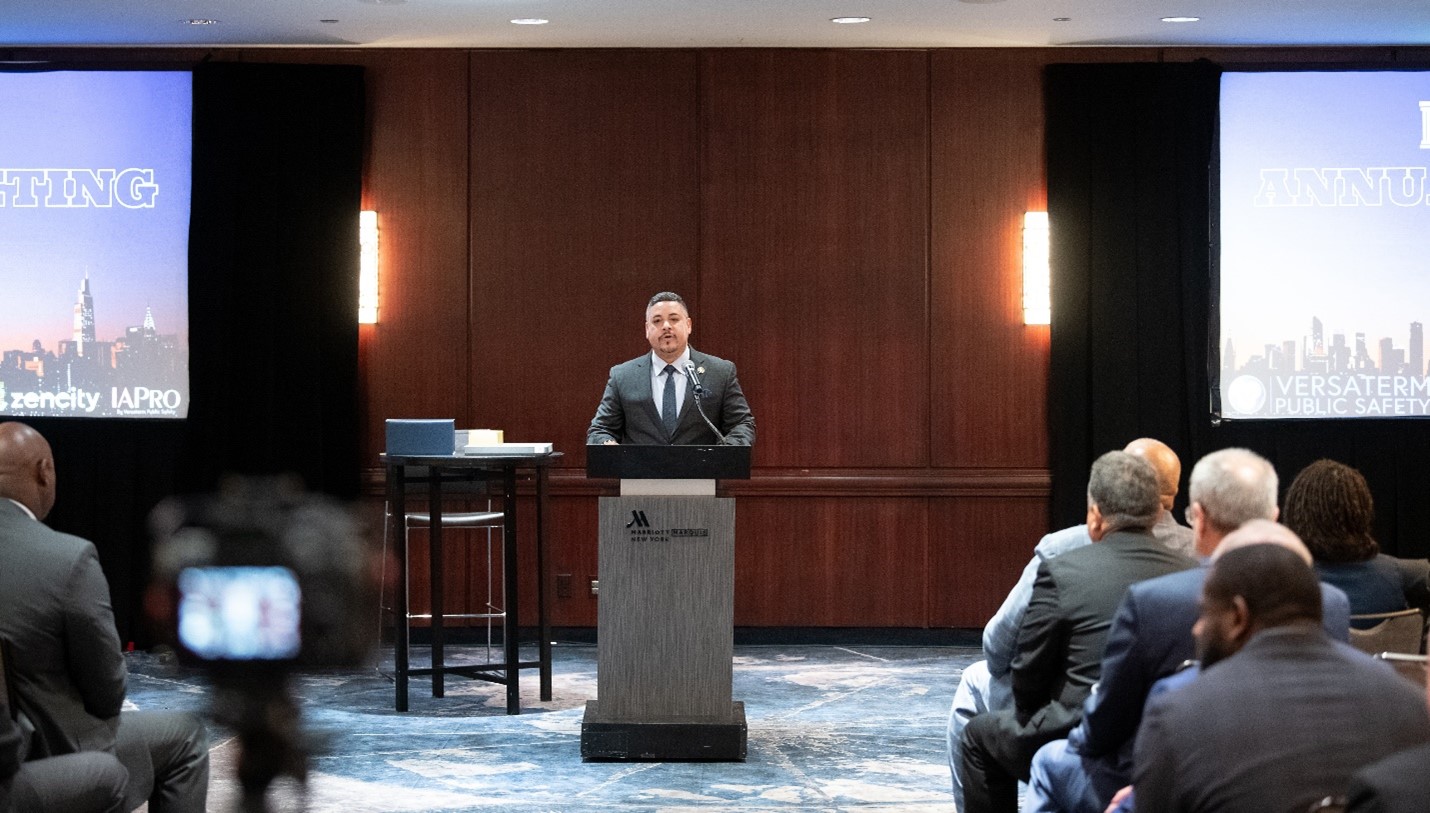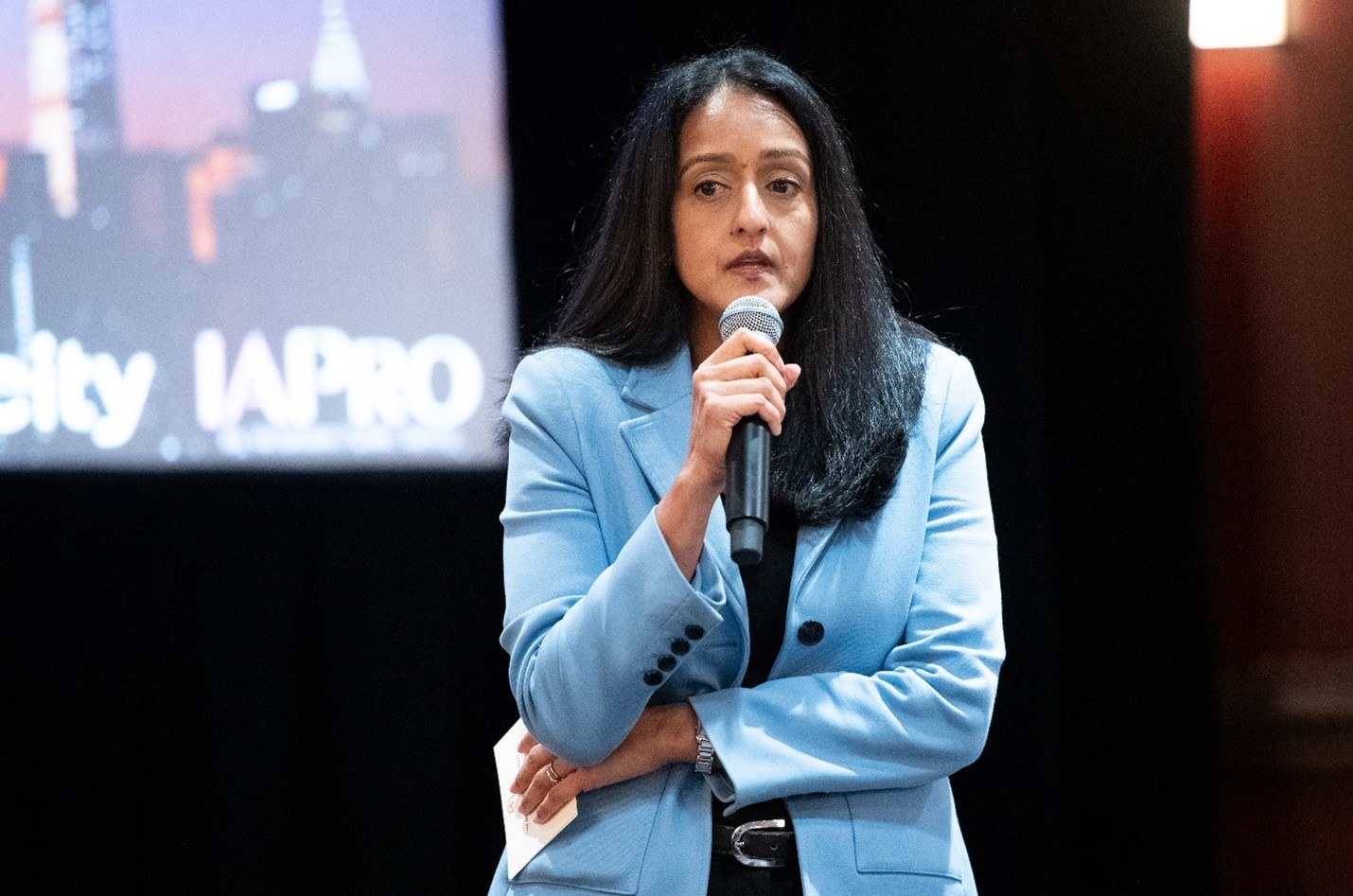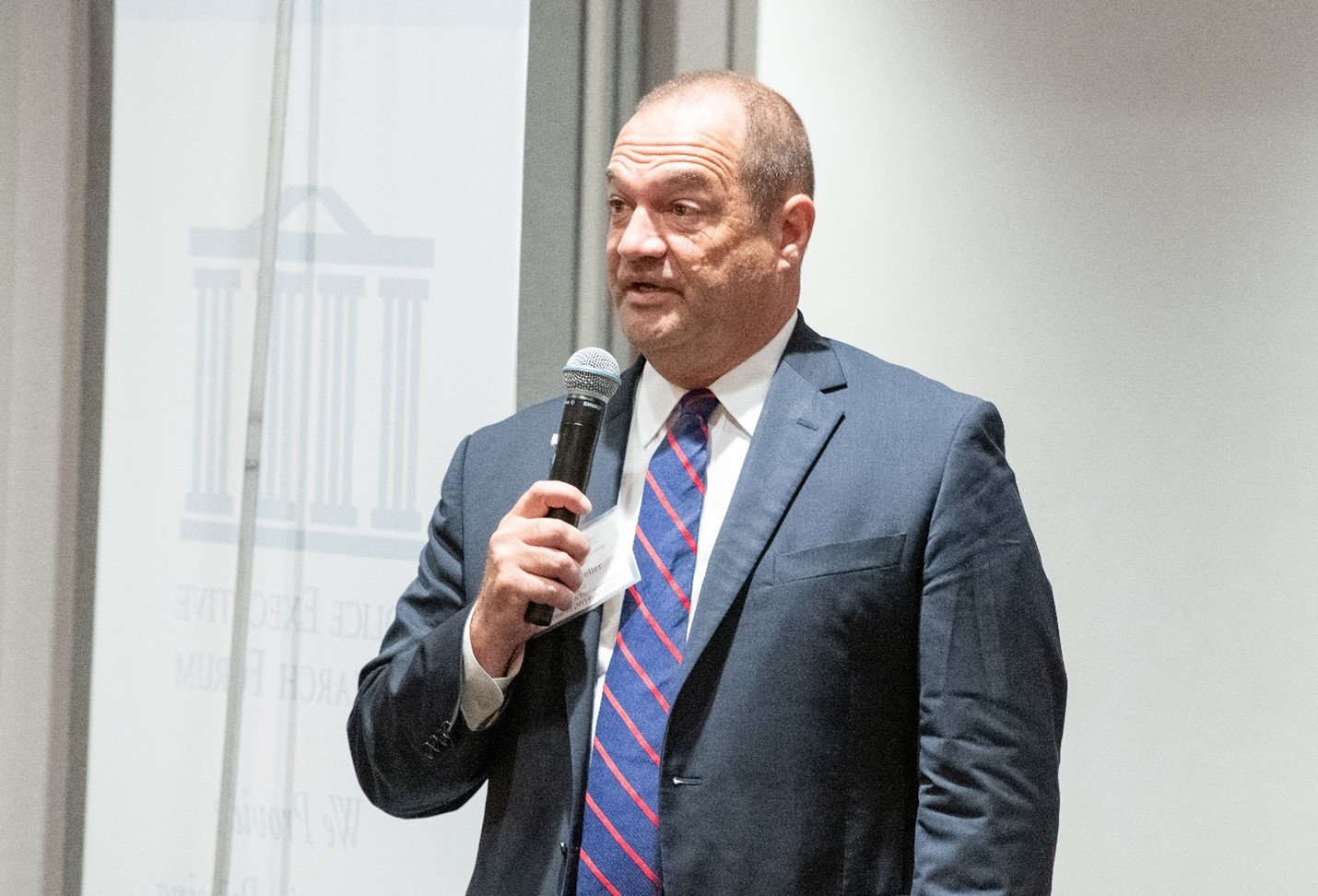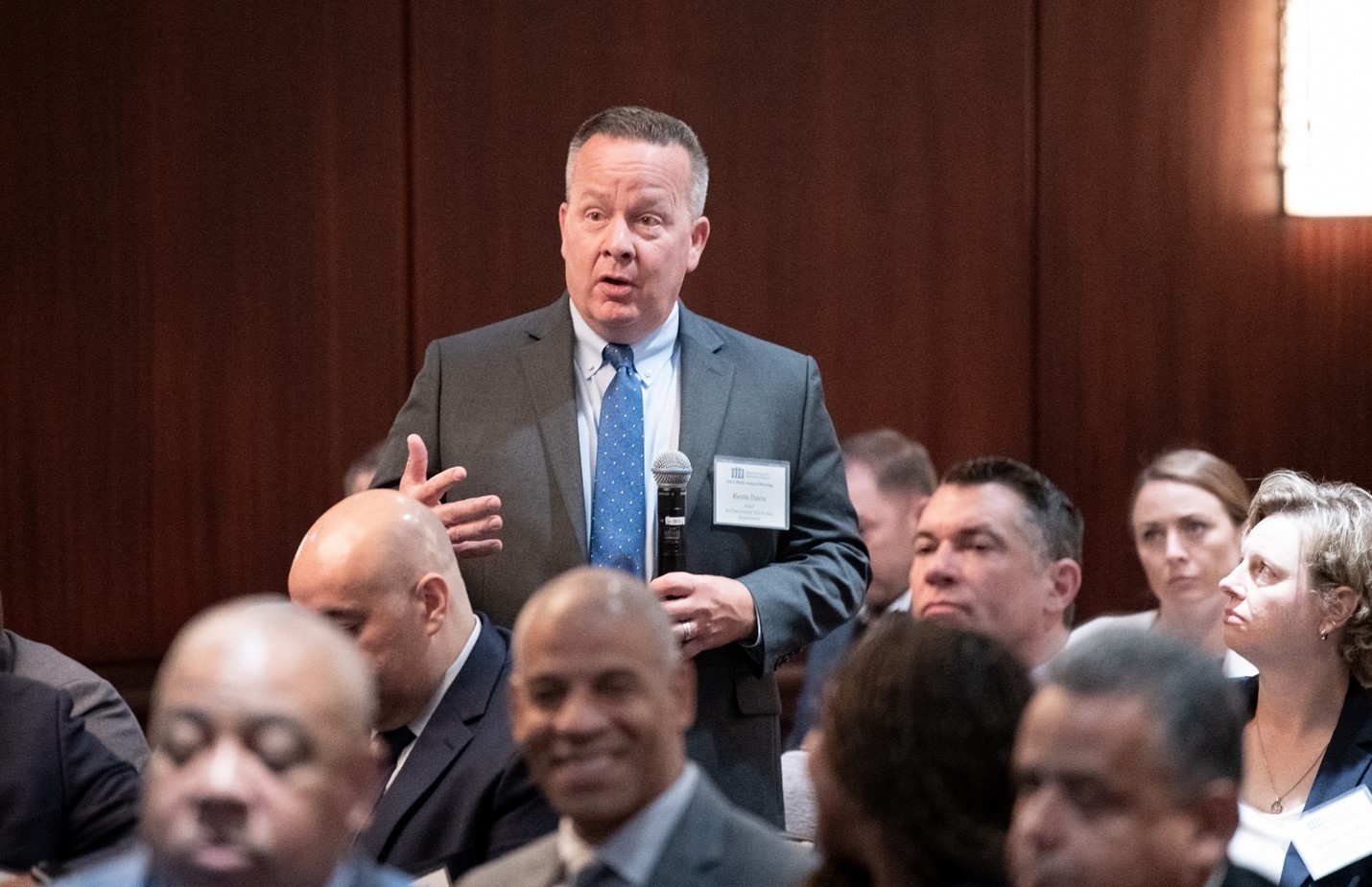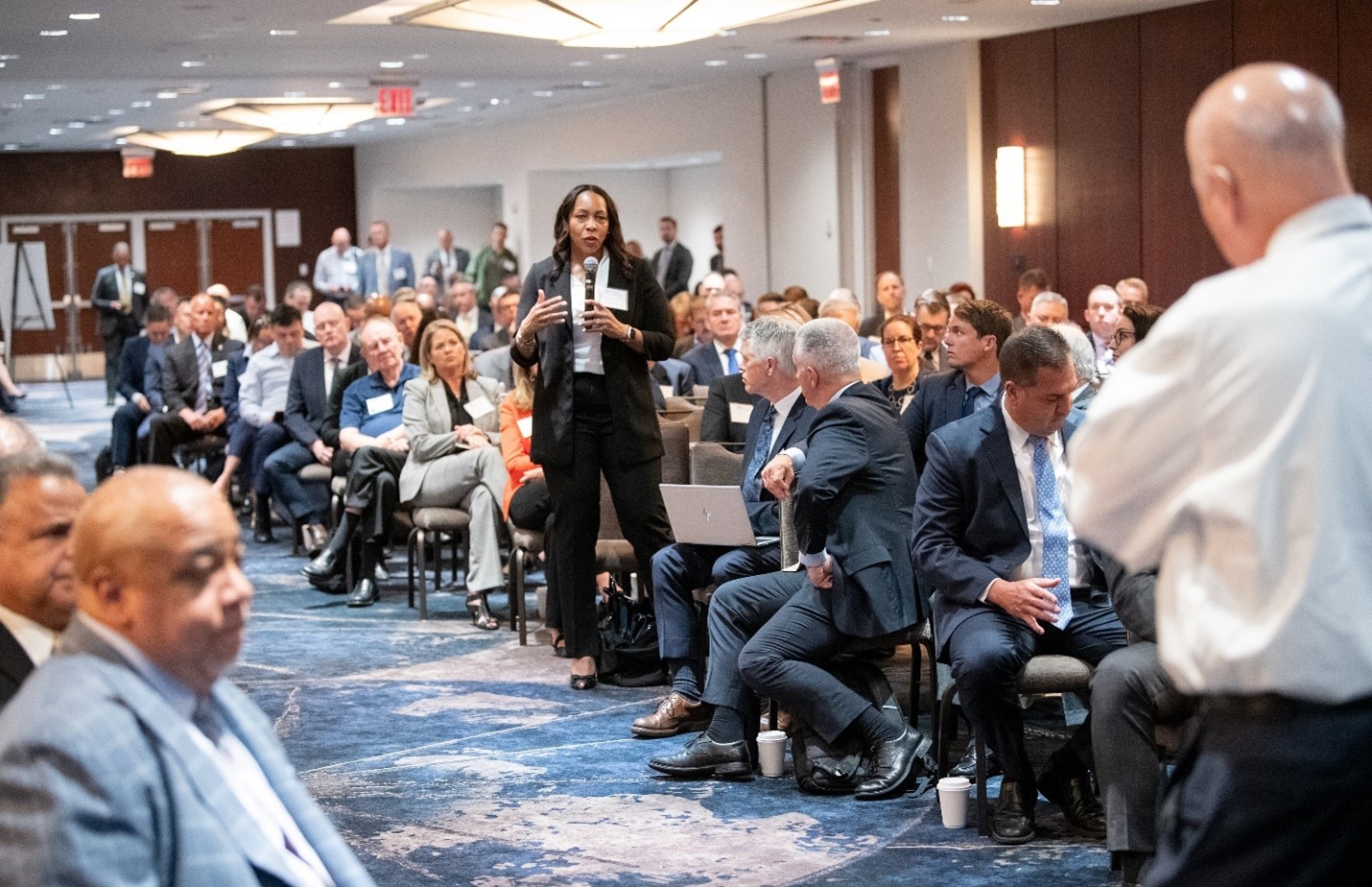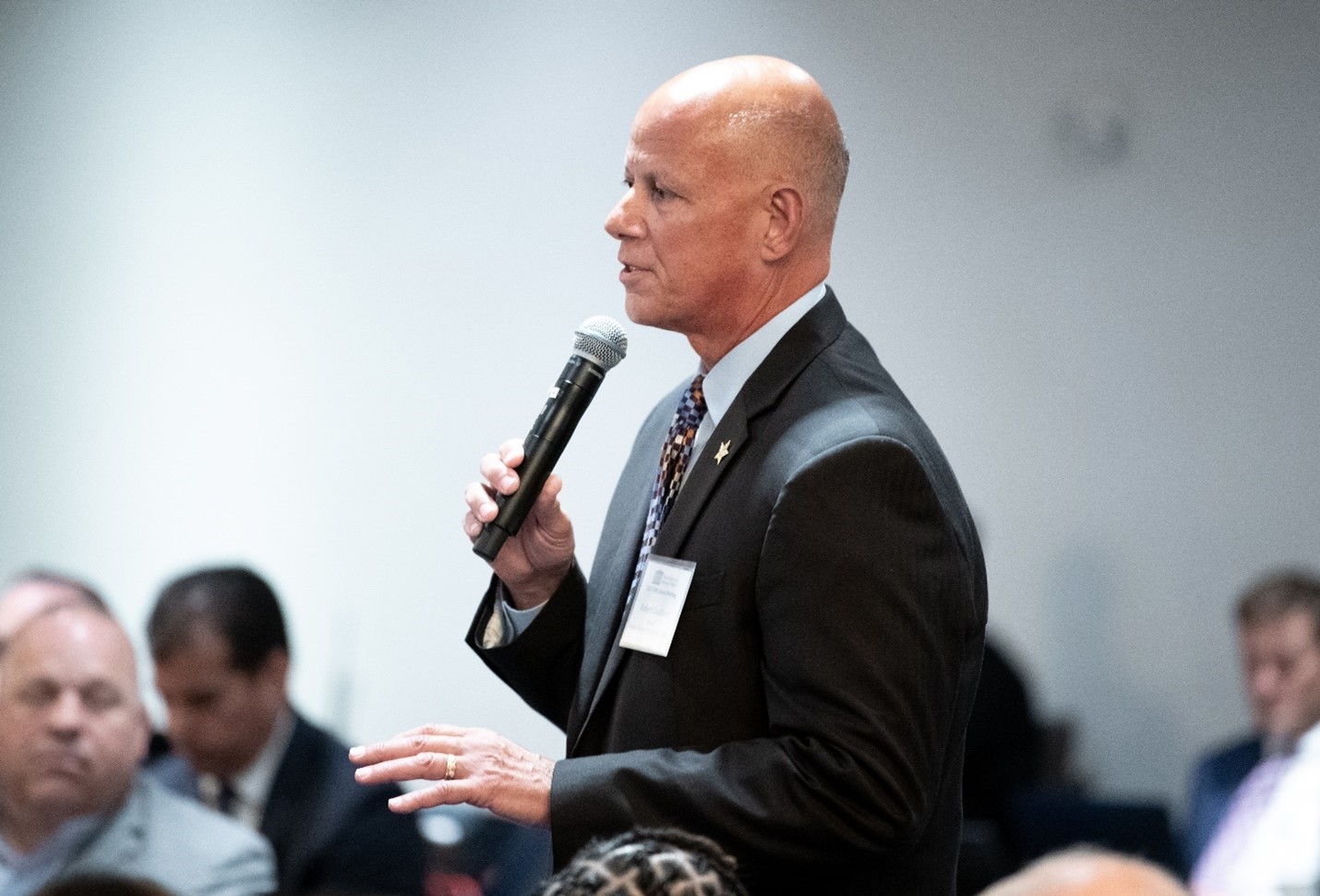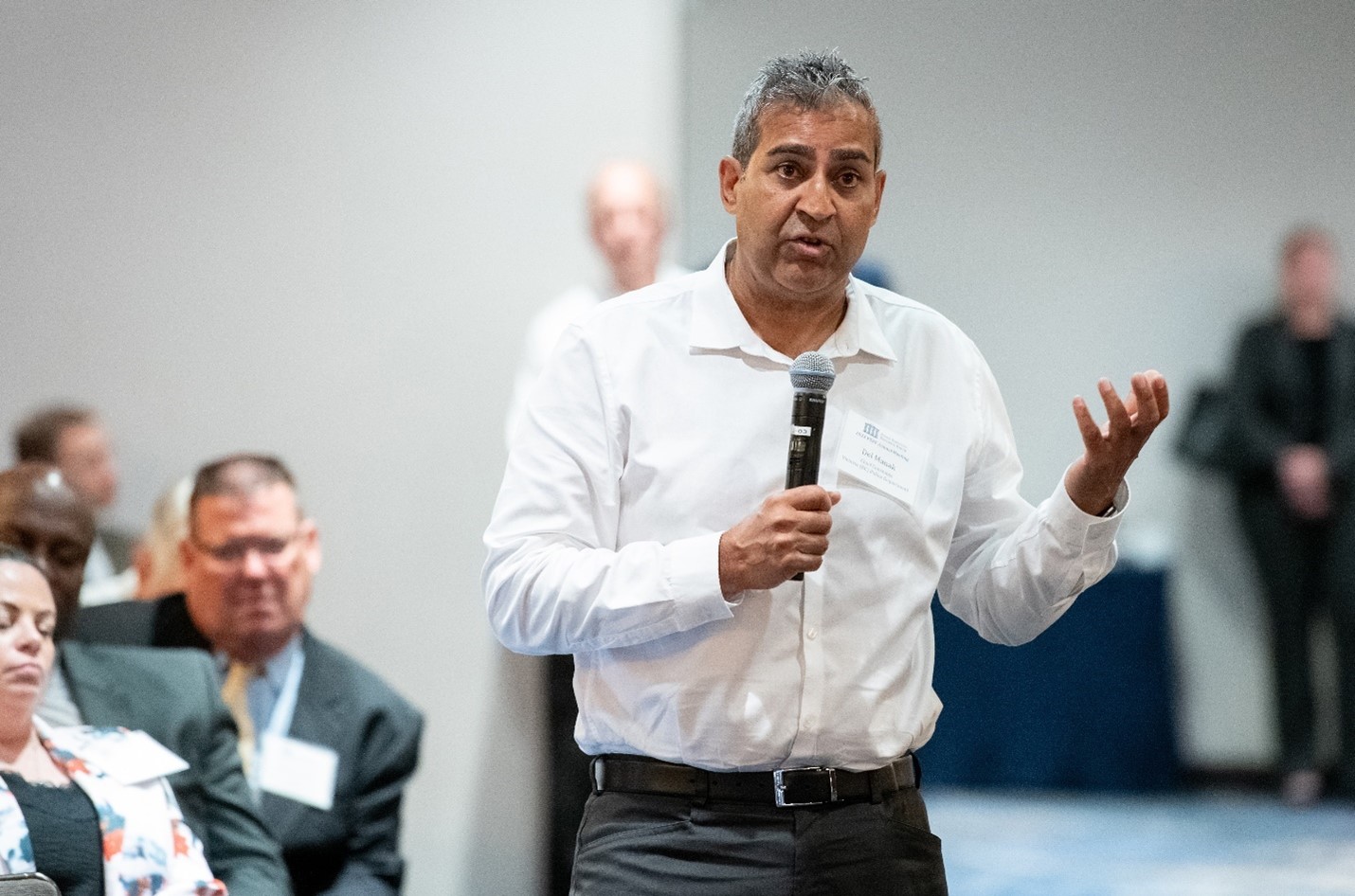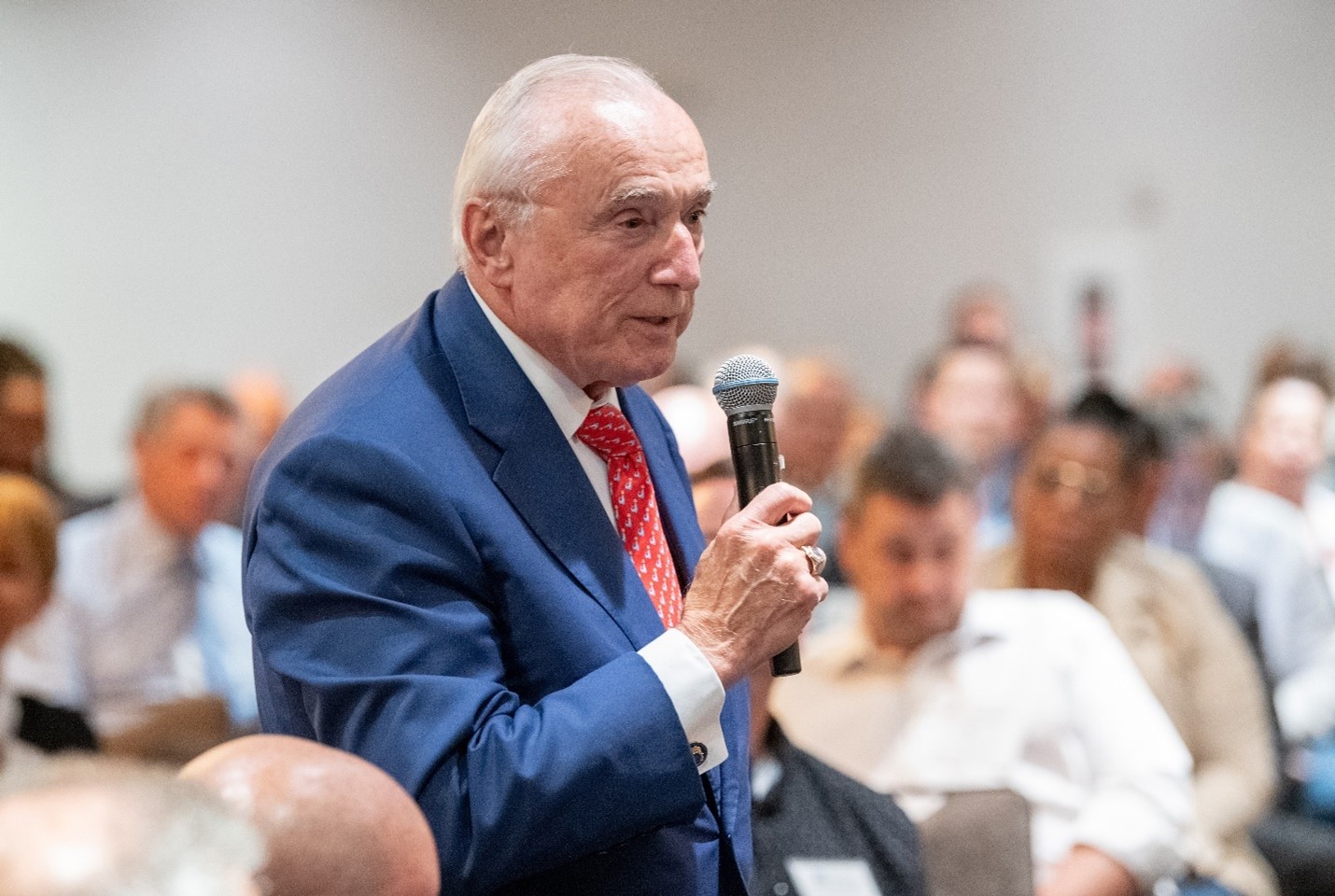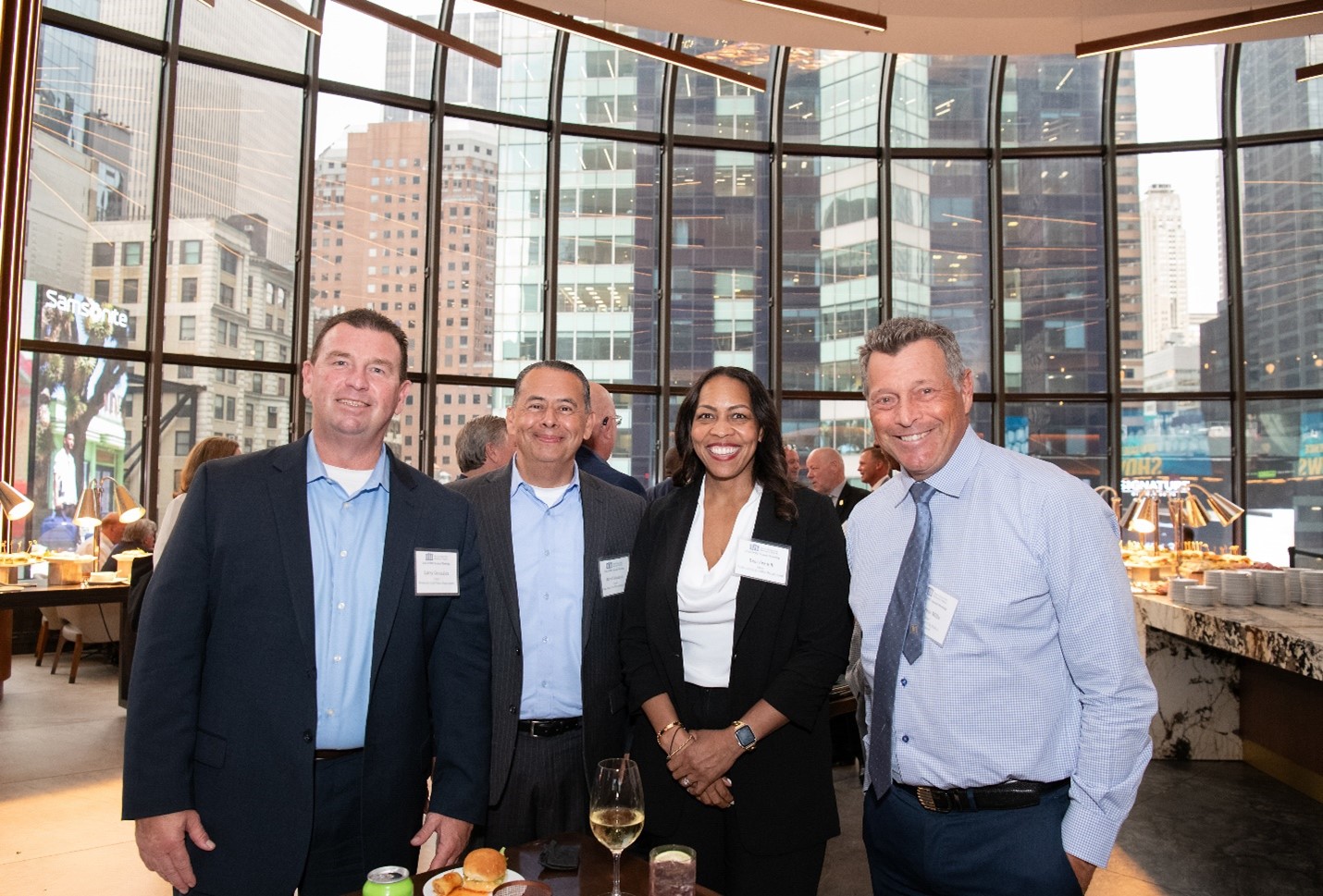|
July 29, 2023 Highlights from the PERF Annual Meeting
PERF members, As I mentioned last week, we recently had a lively, thought-provoking Annual Meeting in New York City. In today’s column, I’ll highlight the conversations about police staffing, being a new police chief, and leading “Monday-morning quarterbacking” sessions, as well as share some photos from the meeting.
2023 PERF Annual Meeting STAFFING An April survey of PERF members found that police hiring picked back up in 2022, while resignations and retirements were still elevated. As a result, total sworn staffing dropped nearly 5 percent from 2019 to 2022. Annual Meeting attendees discussed the staffing situation in their agencies. San Francisco Assistant Chief David Lazar: In San Francisco the starting salary is around $109,000, but most officers make about $125,000-130,000 in their first year. But we’re still having a problem. We received about 1,000 applications, and we need 3,000 to get a class of 55. Our board of supervisors gave our department $81 million in overtime just to make ends meet. We don’t have enough officers to meet demand, so we constantly need officers to work overtime.
Assistant Chief David Lazar Kansas City, KS Chief Karl Oakman: One of the issues I’ve had for about 20 years is the [hiring] process time. I’ve been able to make it to where it takes about 30 days from start to finish. I realize it usually takes six months, but for most of that six months we just fiddle around until we get to the next step, and then to the next step. It’s always taken about 30 days of actual work, but for some reason it would take us six to seven months to hire someone. [With the faster process,] we’ve been able to really hire people. And if our academy doesn’t start for three months, we hire them as auxiliaries and pay them the same salary.
Chief Karl Oakman Metro Nashville Chief John Drake: One of the first things I did was talk our mayor into giving our employees a significant raise, so instead of coming in at $51,000, they came in at $62,000 and are at $70,000 within the first year. I also started a very diverse recruitment team, because people need to see people who look like them. And people want to know who they’re working for, so I put a video on YouTube about me, who I am, and what I’ve done. A lot of people are researching our police department, looking at me, and saying that they want their loved one, husband, wife, partner, son, or daughter to work for you.
Chief John Drake Vancouver, BC Chief Constable Adam Palmer: In Canada we have recruiting issues as well, but I’m happy to say we’ve turned a corner in Vancouver. Between 2019 and 2022, we saw applications for police officers come down significantly. But in 2023, we’ve seen our numbers rise dramatically. We’ve got a 53 percent increase in recruit applications and 870 percent increase in lateral, experienced officers looking to come to Vancouver. We have recruiters across the country, so we’re not just focusing locally. And we have a tiered policing system, with community safety officers doing a lower level of police work assisting frontline officers, and that’s a good stepping stone to becoming a regular officer. The other tier below that is our cadet program, and a lot of those kids have gone from cadet to community safety officer to regular police officer.
NEW POLICE CHIEFS One part of our Town Hall meetings I really enjoy is hearing from new police chiefs about their early successes and challenges. Several new chiefs shared their experiences. Knoxville, TN Chief Paul Noel: I’m having so much fun being able to implement change. Working in a department of about 500 employees, you turn the wheel and the ship actually moves! The thing I’ve struggled with a little bit is we get attacked a lot on social media and all these other platforms. Every decision we make gets second guessed by a handful of people who come to city council meetings and heckle us. Other than that, I really am having the time of my life. The day I stop having fun, I’m going to stop doing this.
Chief Paul Noel Chattanooga, TN Chief Celeste Murphy: It’s been a rollercoaster ride; there’s ups and there’s downs. Being in these circles of veteran chiefs to get some feedback helps a lot. It’s very supportive and it keeps us going. I’m enjoying it. I made this choice, and I’m not regretting it.
Chief Celeste Murphy Boston Commissioner Michael Cox: This is my second chief’s job, but my first in a big city. I’ve come back to the city where I grew up, and it’s a different place than when I left. . . . I’m making sure that people understand what law enforcement is, who we are, and why we’re here to serve. And I’m making sure the police department understands that we’re here to serve the public always, and community policing is the mechanism we use to do that. So it’s a great homecoming in a lot of ways, and I learn something every day.
Commissioner Michael Cox Cambridge, MA Commissioner Christine Elow: I’ve been on the job for 28 years and been the commissioner for just over one year. I echo the chiefs who have said there are highs and lows. In January we had our first officer-involved fatal shooting in 20 years and over 2 million calls for service. I reached out to PERF for some help, and I really do appreciate the partnerships and relationships that we build in the law enforcement community.
Commissioner Christine Elow Wichita Chief Joe Sullivan: [Coming from the Philadelphia Police Department,] they think that because you’re coming from a much larger department, you’re going to have a bit of a bias and think you have all the answers. So it’s a matter of asking a lot of questions, talking to everybody from every rank, including your professional staff, and making sure that everybody has a say before you make a move. Then you communicate your decisions really well throughout the department. Young cops today want to know why we’re doing something, not what our generation heard: “Because I said so.” So increasing communication is really the key.
Chief Joe Sullivan Minneapolis Chief Brian O’Hara: There are very serious open wounds in the city. In the summer of 2020, the ATF investigated hundreds of structure fires that were arsons. The city burned. Hundreds of officers have left the department over the last three years, and they’ve left a whole lot of hurt and trauma. So I think the city has to do a better job of trying to address the trauma issues that both the cops and the residents have experienced. It’s definitely an uphill battle. The department continues to get smaller, week by week, and we have not been able to turn the tide and get at least as many people in the door as those who are leaving.
Chief Brian O’Hara Metro Transit, MN Chief Ernest Morales III: I’ve been on the job five months, and I’m definitely loving it. I think the biggest battle has been changing the culture, being an outsider coming in from New York City with 32 years of experience.
Chief Ernest Morales III
MONDAY-MORNING QUARTERBACKING As I wrote in March, I think it’s important for departments to analyze videos of actual serious incidents, both from their agencies and from others, to identify lessons learned and gaps in policy and procedure. By doing so, we can prevent similar incidents from occurring in the future. At the Annual Meeting, we organized a panel discussion with chiefs from departments where I held these “Monday-morning quarterbacking” sessions about the death of Tyre Nichols at the hands of police in Memphis.
Santa Ana, CA Chief David Valentin; Palm Springs, CA Chief Andy Mills; Anne Arundel County, MD Chief Amal Awad; Montgomery County, MD Chief Marcus Jones; Laconia, NH Chief Matt Canfield; Christine Cole Santa Ana, CA Chief David Valentin: Every week I get together with my senior management team. If something occurred the prior week, we put it up on the big screen and go through it. Clearly we don’t have all the information, but what do we know and how does it relate to how we’re doing business? And sometimes we make adjustments.
Chief David Valentin Palm Springs, CA Chief Andy Mills: We’ve been showing videos for a couple years. You put the video up, then ask for feedback, and there’s dead silence. Finally someone will say, “I wasn’t there.” We may not know the entire context, but you just watched part of it and know what you saw. Finally one courageous person will speak up and the floodgates will open. When Chuck came, I was mostly interested in whether the information would flow better with an outsider coming in to facilitate the discussion. I think it’s not so much about showing the video as how it’s facilitated when people discuss the video.
Chief Andy Mills Anne Arundel County, MD Chief Amal Awad: I agree bringing in an outside person, especially from academia, can help bring down the temperature of the room so folks aren’t so shy about speaking up. We also moved the meeting outside our headquarters to a waterfront property, so the space was more relaxed and people were comfortable speaking up. I think we all had the same perspective, which is how do we prevent something like this from occurring in Anne Arundel County?
Chief Amal Awad Montgomery County, MD Chief Marcus Jones: I think Monday-morning quarterbacking is a very important part of leadership in our roles. If we’re not paying attention to what others are doing, you best believe it could be happening in your shop. If we don’t think that, then we’re naïve as leaders. So I felt like there was a strong need for us to have this candid conversation about what happened hundreds of miles away from Montgomery County, but clearly was impacting members of our community.
Chief Marcus Jones Laconia, NH Chief Matt Canfield: We have many smaller departments in the Northeast, and we invited agencies from across New England to attend. When command staff walks into a roll call to facilitate a discussion, no one will talk. But bringing in Chuck to facilitate gave people the opportunity to speak candidly, and I think it was very, very beneficial. Christine Cole, Community Safety Consultant: I had the privilege of joining the session in Laconia, and it made me think about some of the work I’ve done across the country observing force review boards. I’ve noticed there’s dead silence, then someone will say, “The force was good, so what are we doing here? We’re all set.” How do we dig more deeply into what happened, then take the steps to make sure it doesn’t happen again? We see systemic failure, and how do we learn from these videos to turn it into systemic success?
Chief Marcus Jones, Chief Matt Canfield, and Christine Cole
ADDITIONAL PHOTOS FROM ANNUAL MEETING
PERF Board Members: Metropolitan Nashville Chief John Drake; LAPD Chief Michel Moore; and Seattle Chief Adrian Diaz
New NYPD Commissioner Edward Caban
Associate Attorney General Vanita Gupta
Metropolitan Transportation Authority Police Chief John Mueller
Fairfax County, VA Chief Kevin Davis
Richmond, CA Chief Bisa French
Pinellas County, FL Sheriff Robert Gualtieri
Victoria, BC Chief Constable Del Manak
Retired NYPD Commissioner Bill Bratton
California chiefs Larry Gonzalez (Riverside), David Valentin (Santa Ana), Bisa French (Richmond), and Andy Mills (Palm Springs) at the reception
Thanks again to everyone who joined us in New York City! Best, Chuck |

